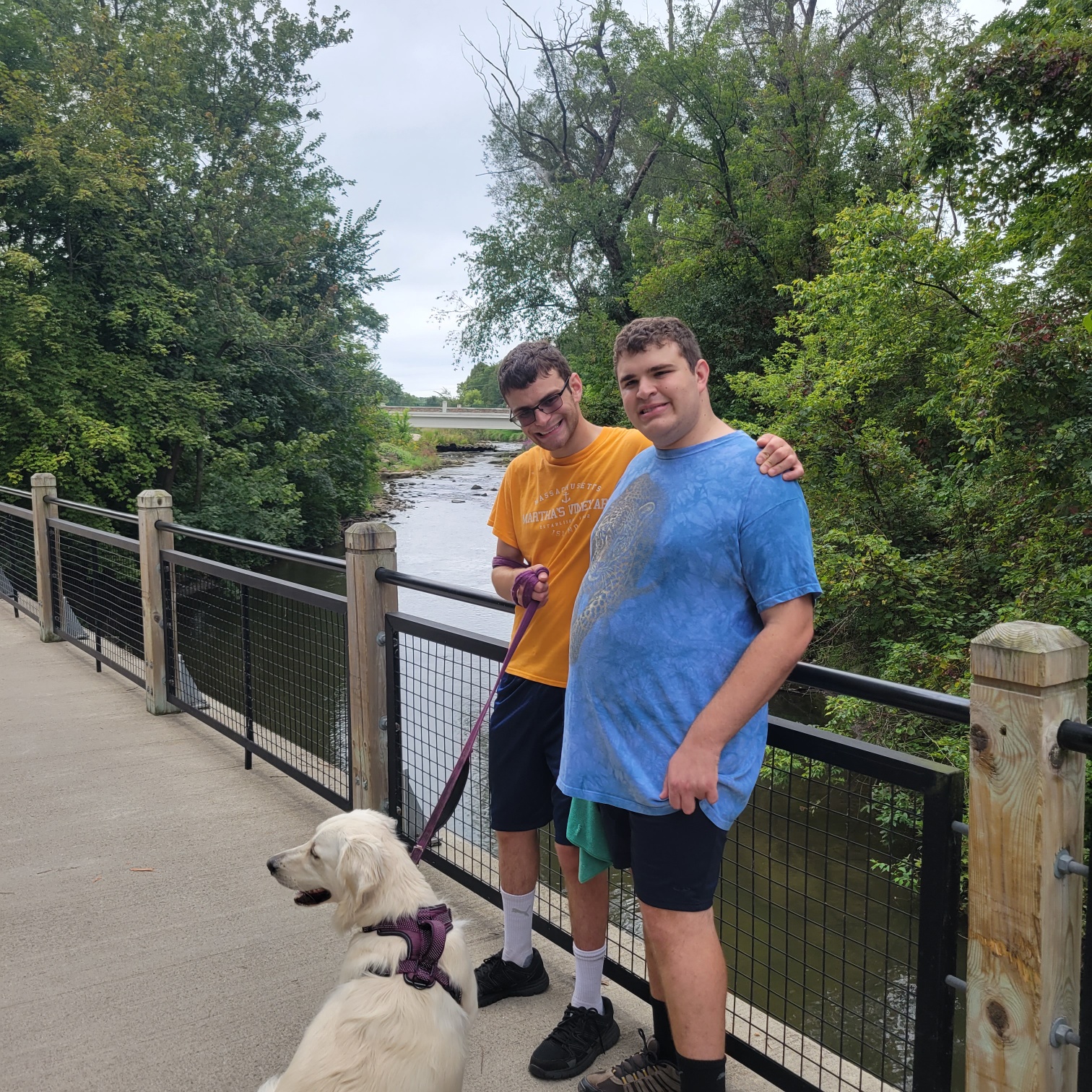Thanks to an email introduction, Family Medicine faculty members have been able to support local mom Barb Byers as she navigates the transition from pediatric to adult care for her two sons.
Barb’s eldest son, Sam, is both autistic and has developmental disabilities, which require constant care. Her younger son Josh is higher functioning on the autism spectrum and is currently attending community college.

For caregivers of young adults with disabilities, finding a primary care provider who can care for individuals with disabilities and is willing to adapt services to accommodate each patient’s unique needs is a challenge. Byers put it off as long as possible since her pediatrician knew how to interact with their kids and was open to listening to her requests and advice.
“My pediatrician was amazing,” Byers said. “He was fresh out of medical school when we began seeing him. He was totally honest about what he didn’t know, was very willing to listen and was always willing to do what I asked. I didn’t really want to move until we had to.”
Byers has had to work as a tenacious health care advocate for Sam and Josh, pouring over literature and resources to learn more about her sons’ conditions and using informal parenting networks to fill in knowledge gaps.
“Over the years, most of the best information came from parents,” Byers said. She describes the traditional healthcare system as a complicated and fragmented one when it comes to arranging adult care for her sons.
Interacting with healthcare teams sometimes has meant teaching doctors how to care for Sam and Josh, whether it’s using a lighter touch when administering a shot or, for example, allowing her into the clinic space to soothe Sam when he has had to undergo uncomfortable procedures.
“I don’t expect a general doctor to be an expert in autism or developmental disabilities, but I do expect a doctor to be open to listening, to spending a little more time with my sons,” Byers said, adding that she would also like to see doctors have strategies to prepare for situations that may require a different approach to caring for individuals with disabilities.
In her protracted and often frustrating search for medical programs supporting people with disabilities, Byers discovered the MDisability website. MDisability is a program embedded within the Department of Family Medicine that provides support for clinicians providing care for patients with disabilities. Via email, she reached out to the program’s director, Michael M. McKee, MD, MPH, as well as Lauren Oshman, MD, MPH, FAAFP, asking if they could help.
Their response? “Yes, we can help!”
Byers said she is grateful for their swift and positive responses.
“It was great that people (at U-M) came back to me so quickly,” she says. “I just really appreciated their openness.”
A substantial focus of the Department of Family Medicine’s MDisability program is to educate family medicine and other primary care providers so that they feel comfortable and confident in their ability to care for people with disabilities like Sam and Josh. Currently, primary care providers and researchers who want to study or practice disability health have limited opportunities to advance their knowledge in the subject. By filling the gap in training opportunities, MDisability members hope to ultimately address health care disparities experienced by people with disabilities.
“Our family medicine team is committed to providing compassionate, person-centered primary care for those with disabilities,” McKee said. “We know that this transition from pediatric care to adult care is a challenging and stressful change for both caregivers and their young adult children. By supporting parents like Barb, we at MDisability hope we can make that transition easier to ensure that all patients with disabilities receive appropriate and effective healthcare.”
When asked what clinicians can do to make appointments easier for young patients with disabilities and their caregivers, Byers advises doctors to be honest with parents of children and/or young adults with disabilities.
“If you’re not sure about something, admit it and trust the parents,” she said. “Most parents know what their kids need. Don’t brush that off. If we can develop tools that are useful ahead of the visit,” that will help the visit go more smoothly.
For more information about the MDisability program and family medicine providers who provide clinical care, please visit the MDisability website.
To find a U-M family medicine provider who cares for people with disabilities, please click here.


